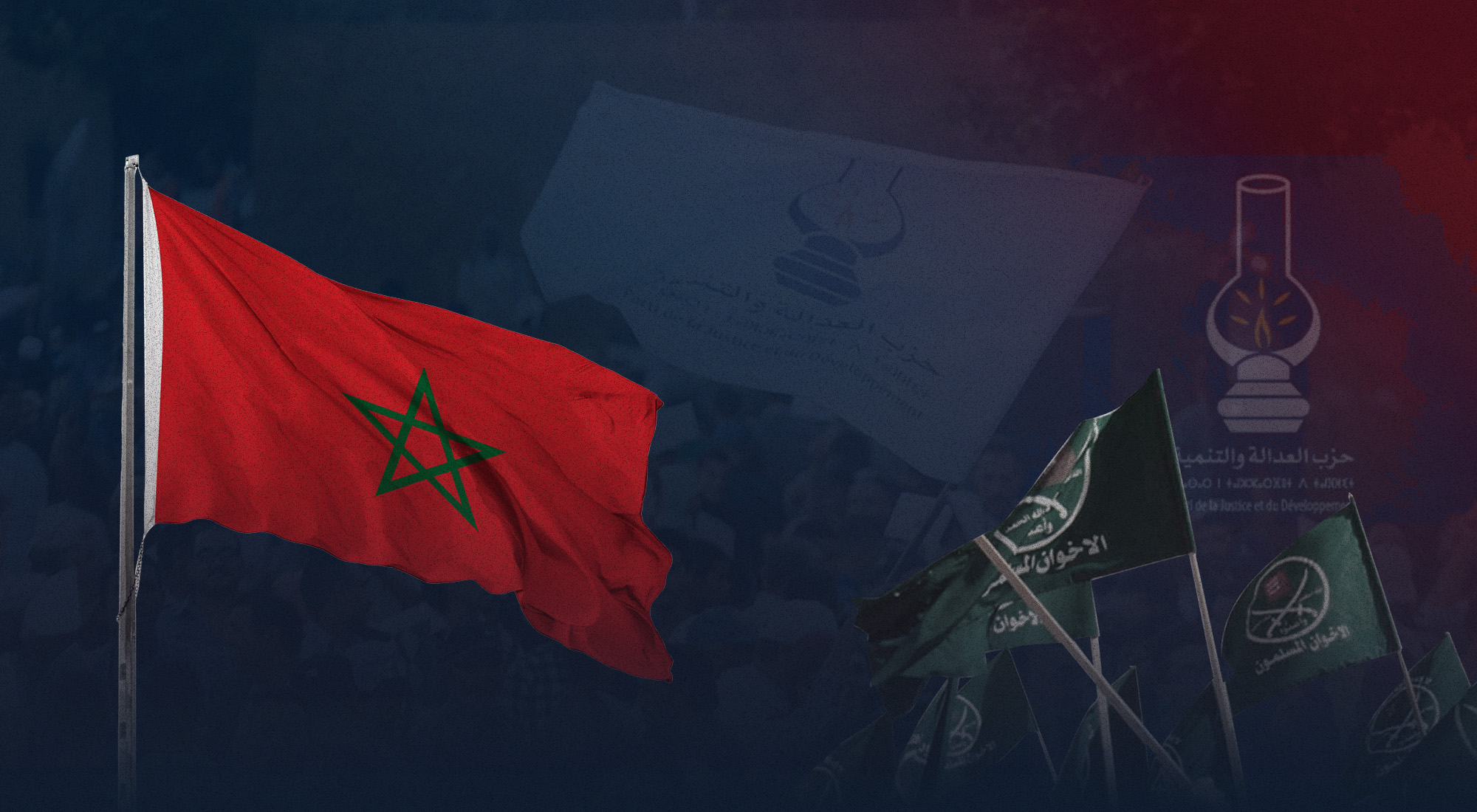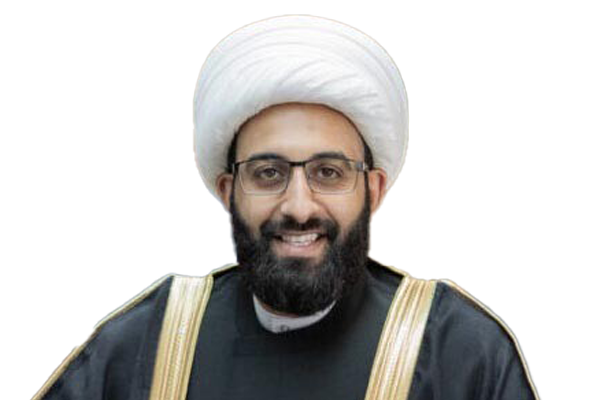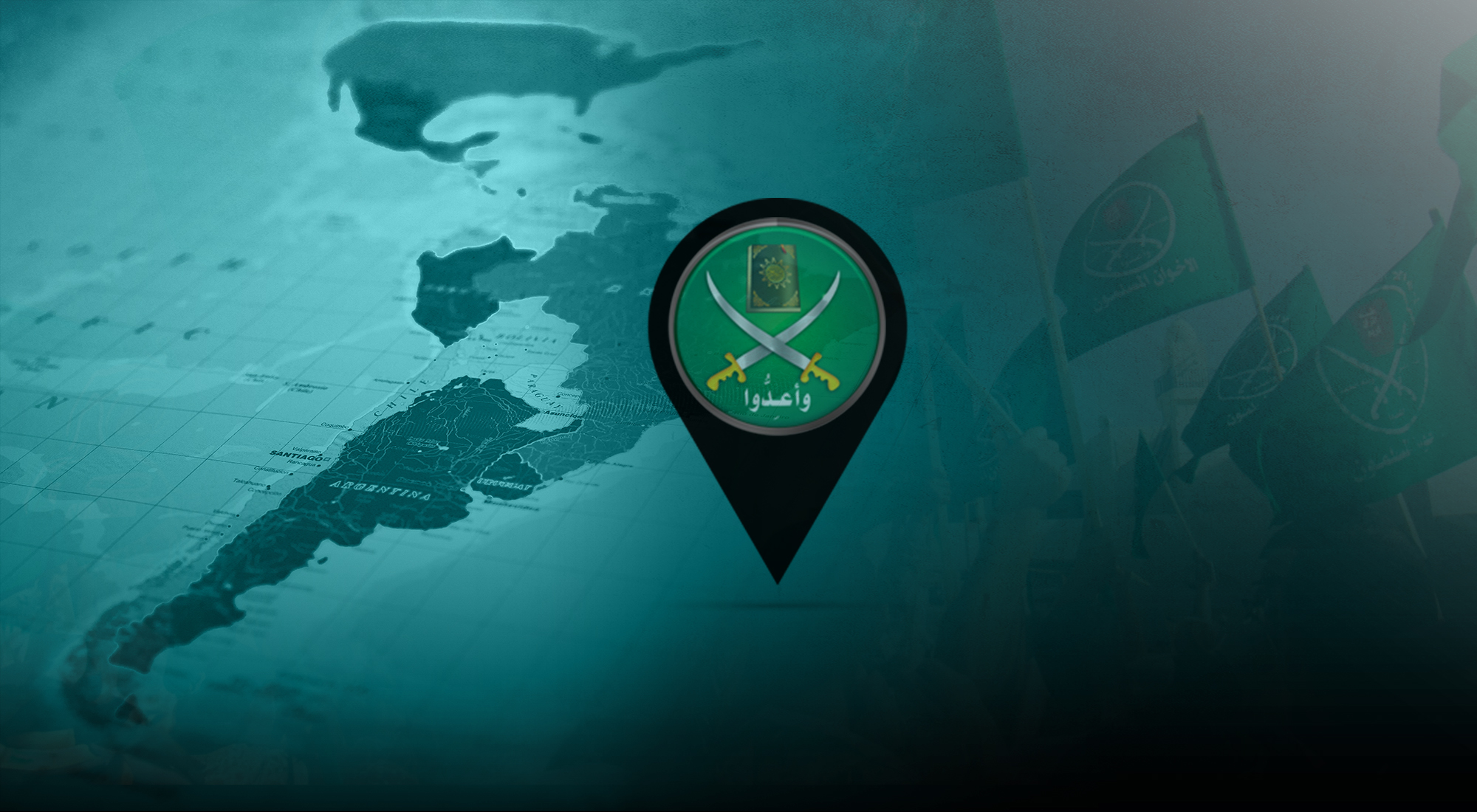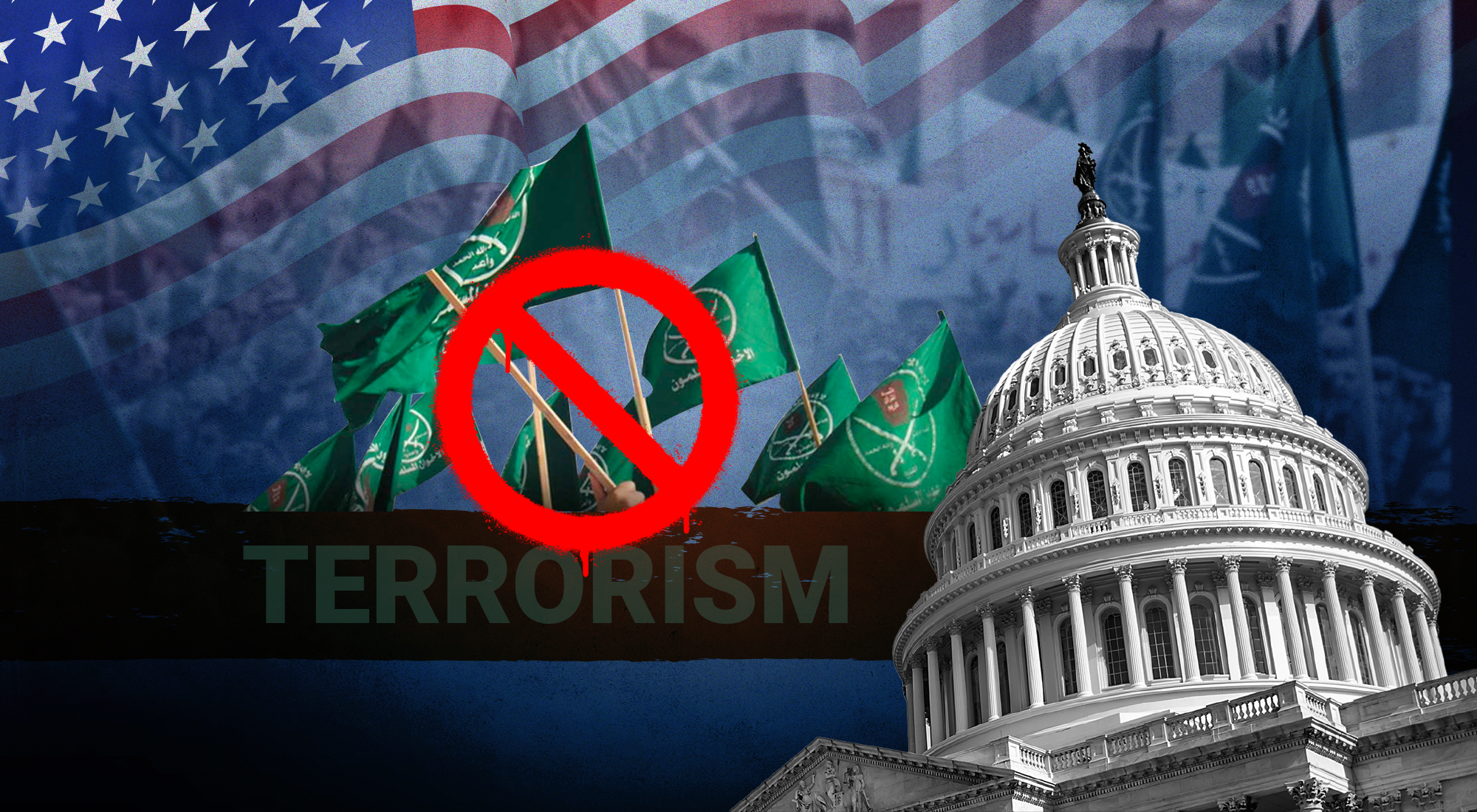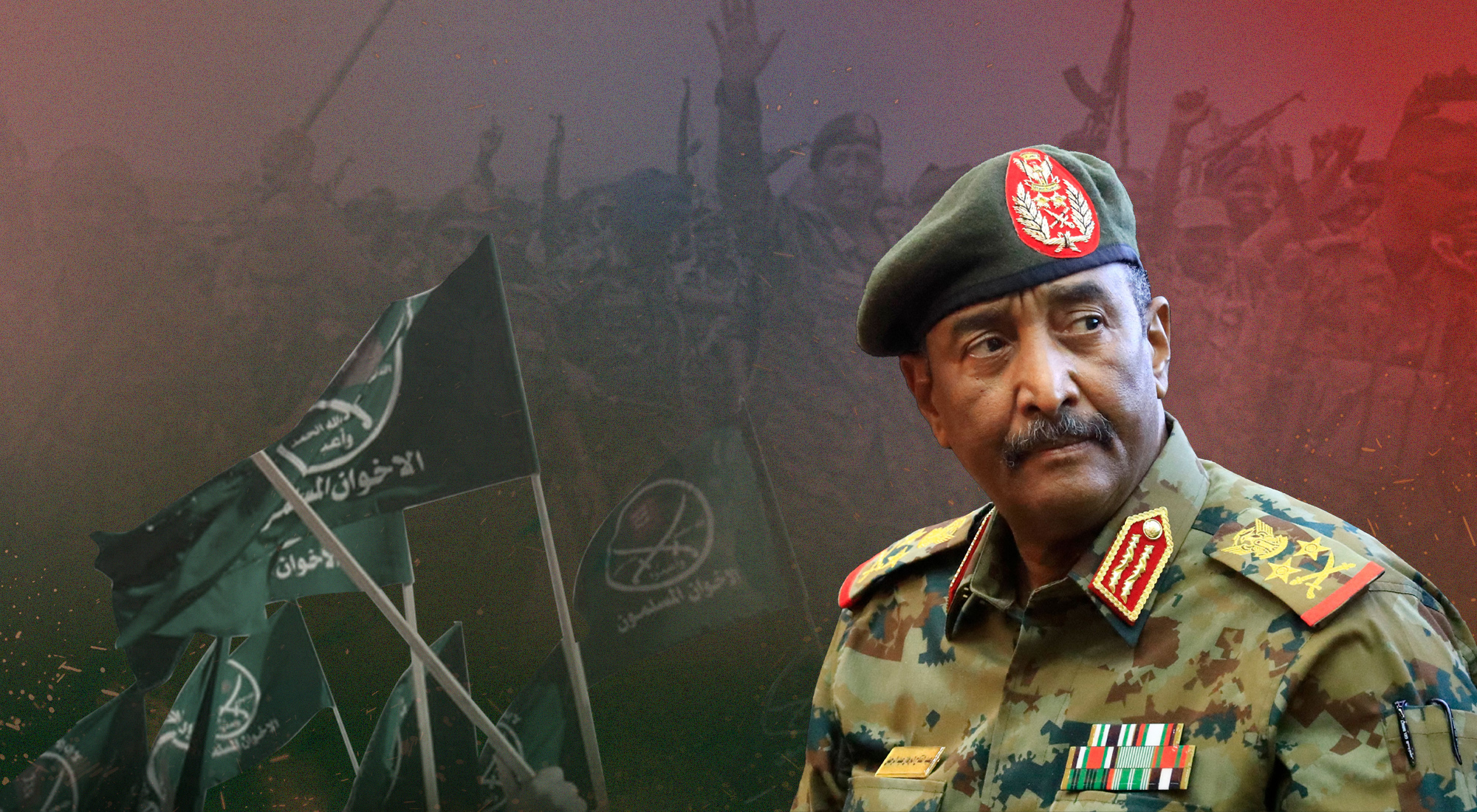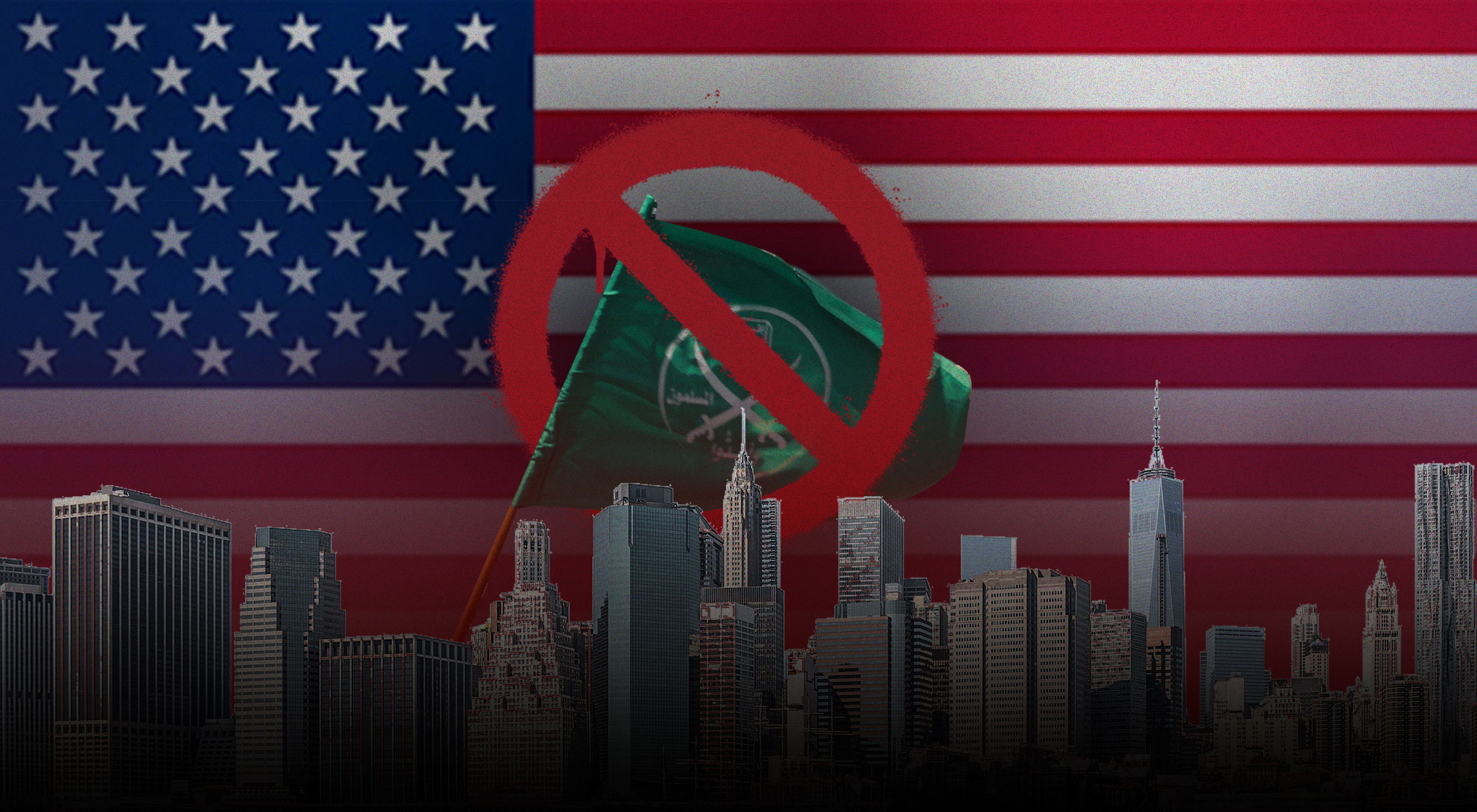The Muslim Brotherhood (MB), founded in Egypt in 1928, is a key transnational Islamist and designated terrorist entity that has shaped political and social dynamics across the Middle East and North Africa. In Morocco, while the Kingdom has largely restricted formal Brotherhood structures, the MB’s ideological influence is prominent through the Justice and Development Party (PJD), a political party inspired by Brotherhood principles yet operating within Morocco’s unique monarchical context. The PJD’s role from 2011 to 2021 signaled a model of Islamist political participation marked by pragmatism and accommodation with royal authority, diverging from more confrontational or militant Brotherhood affiliates elsewhere. This insight examines Morocco’s distinctive Islamist landscape, the transnational networks linking the MB across the region, and related security concerns, including ideological extremism. Comparative analysis with Egypt and Tunisia highlights Morocco’s controlled political inclusion of Islamists, balancing reformist participation and regime stability. The findings demonstrate how Morocco’s political and constitutional context, state control, and intra-Islamist competition shape the trajectory of Islamist movements and serve as a case study for managing transnational Islamist influence and associated security risks.
1. Introduction
The Muslim Brotherhood (MB) is widely recognized for its dual strategy of political engagement and social activism, combining electoral participation with grassroots outreach through civil society, charities, and educational institutions. This approach, often described as gradualist and pragmatic, aims to embed Islamist ideology within social and political frameworks without resorting to violence (Colombo, 2022).
In Morocco, the Brotherhood’s influence is primarily ideological and indirect. The Justice and Development Party (PJD), Morocco’s main Islamist party, reflects many principles aligned with the MB’s political vision, advocating for Islamic democracy while operating within the constraints imposed by the country’s monarchical system. The PJD’s rise to prominence, culminating in its governance from 2011 to 2021, was marked by a moderate, non-confrontational posture toward the king and state institutions, contrasting with more radical Brotherhood affiliates in other countries (Colombo, 2022). This strategy allowed the PJD to gain popular legitimacy while demonstrating adaptability to Morocco’s political context, which is characterized by a selective opening to Islamist participation under tight royal oversight (Hamid, 2023; Hirichi, 2007).
Moreover, the Brotherhood’s ideological dissemination in Morocco extends beyond formal politics into social and religious spheres via affiliated charities, educational programs, and civic organizations. These entities help promote a socially conservative Islamic agenda and foster community mobilization, although they carefully avoid overt political dissent or extremist rhetoric due to Morocco’s strict regulatory environment and security apparatus (Spiegel, 2015).
Historically, Brotherhood-linked movements elsewhere have sometimes embraced violent extremism, most notably Hamas in the Palestinian territories and groups associated with unrest in Egypt and Libya. This has raised persistent concerns that the ideological space created by MB-influenced actors—even if nonviolent—could serve as a gateway for radicalization and latent security threats (Colombo, 2022). In Morocco, despite a largely non-violent Islamist political culture, security agencies remain vigilant to potential vulnerabilities arising from such ideological influences in the context of regional instability and transnational networks (Matesan, 2020).
Moroccan Islamists face unique challenges due to the monarchy’s balancing act of co-opting moderate fundamentalists while suppressing radical elements (Hassan, 2012). The state’s control of religious institutions and its promotion of its own official Islam have limited the Brotherhood’s capacity to mobilize independently or to foment unrest (Johnson, 2009). However, the MB’s intellectual and organizational legacy persists in Morocco’s political discourse and civil society, making the country a noteworthy case of ideological diffusion combined with regime-managed Islamist participation (Spiegel, 2015).
Taken together, the Muslim Brotherhood’s presence in Morocco is predominantly ideological and institutionalized through the PJD and allied networks (Hamid, 2023; Spiegel, 2015). While the Brotherhood’s history of extremism elsewhere informs cautious security assessments, Morocco’s political and religious landscape has thus far contained direct extremist activity, presenting a model of controlled Islamist engagement amid broader regional tensions (Colombo, 2022).
This study seeks to
- Trace the historical roots of MB influence in Morocco.
- Examine ideological, political, and social dimensions of MB-linked activity.
- Assess potential security risks associated with MB networks.
- Provide comparative insights with Egypt and Tunisia.
- Offer policy recommendations for mitigating risks while maintaining political pluralism.
2. Historical Background
The Muslim Brotherhood was founded in 1928 by Hassan al-Banna in Egypt, emphasizing Islamic revival and political participation. Its transnational expansion throughout North Africa was facilitated by migration and networks of Islamic charities (Kepel, 2002; Wickham, 2013).
Morocco’s Islamism developed in the context of a strong monarchy and managed pluralism. The Justice and Development Party (PJD), formally founded in 1997, is the main political vehicle reflecting Muslim Brotherhood-inspired ideology. Unlike their Egyptian or Jordanian counterparts, Moroccan Islamists have largely avoided direct confrontation with the monarchy, instead pursuing gradual reforms and community engagement (Willis, 2012; Wegner, 2011).
The PJD in Morocco exemplifies an organizational adaptation of Muslim Brotherhood principles tailored to Moroccan political realities. Unlike more confrontational or revolutionary Brotherhood branches, the PJD embraces a pragmatic approach that appears to respect Morocco’s constitutional monarchy, taking care to avoid direct challenges to royal authority. This adaptation had allowed the party to participate formally in politics while promoting an Islamist agenda aligned with the MB’s broader ideological framework. The PJD’s platform has prioritized issues like fighting corruption, economic reform, and social justice, which reflects a strategic downplaying of the extremist rhetoric associated with the global Brotherhood movement. This careful balance between ideological adherence and political realism characterizes the PJD as a distinctly Moroccan expression of the Brotherhood’s legacy (Counter Extremism Project, 2023; Middle East Institute, 2022; Brookings Institution, 2021; MEI, 2020).
Electoral participation constitutes a core pillar of the PJD’s strategy, mirroring the MB’s commitment to gradualism through democratic processes. Since its emergence in the late 1990s, the PJD has steadily increased its electoral base, culminating in a historic victory that allowed it to form a government from 2011 to 2021. The party uses elections as a platform to legitimize Islamist participation within the state’s political framework, emphasizing legal and institutional methods to pursue its goals rather than direct confrontation. Social outreach is another critical component of the PJD’s approach, with charitable activities and educational initiatives serving as instruments to build community support and disseminate Islamic values in a manner consistent with MB practices globally. These initiatives have helped solidify the party’s grassroots presence and promote social mobilization within Morocco’s regulatory environment, despite the party’s official denials of formal MB affiliation (Counter Extremism Project, 2023; Middle East Institute, 2022; Clingendael Institute, 2022; MEI, 2020).
3. Ideological Influence
The Muslim Brotherhood’s ideological influence in Morocco is most discernible in three areas: governance, social activism, and youth mobilization. In governance, the MB’s principles manifest through attempts to frame laws and policies within moral and ethical Islamic terms, a strategy adopted by the PJD to integrate Islamic values into national legislation without directly confronting the monarchy’s authority (Wilson Center, 2025). This approach emphasizes social conservatism, ethical governance, and the preservation of Islamic moral frameworks within the existing political system. The PJD thus reflects the MB’s gradualist vision by seeking change through formal political avenues and cooperation with the monarchy rather than outright opposition (Counter Extremism Project, 2015).
Beyond formal politics, the MB’s influence extends into social activism via schools, mosques, and charities, which serve as grassroots channels for spreading Islamist ideology and amplifying community engagement. These institutions promote Islamist civic values, education, and social welfare, replicating the Brotherhood’s broader model of societal penetration seen in other countries (Clingendael Institute, 2022). Youth mobilization occupies a critical role in sustaining the MB’s long-term ideological project in Morocco, as Islamist groups actively promote Islamic civic values among younger generations to foster future political participation and community leadership within an Islamic framework (Brookings Institution, 2022). While the MB’s activities in Morocco remain largely non-violent, awareness grows regarding the potential for ideological frameworks to facilitate more radical interpretations, especially considering transnational Brotherhood links that can influence local Islamist dynamics (Langohr, 2020).
4. Political Mobilization: The PJD
The Justice and Development Party (PJD) in Morocco’s political mobilization is marked by several key electoral milestones. Between 2002 and 2007, the PJD experienced gradual parliamentary growth, extending its electoral base in both urban and some rural constituencies by positioning itself as a moderate Islamist party. The 2011 Arab Spring catalyzed a landmark moment for the PJD, as constitutional reforms opened the door for greater political pluralism; the party consequently won the largest share of parliamentary seats and formed the government under Abdelilah Benkirane, signaling a breakthrough for Islamist participation in Morocco’s governance (Abouzzohour, 2017; Middle East Institute, 2021). However, since 2021, the PJD has faced a significant decline attributed to electoral fatigue, internal party conflicts, and generational shifts in voter preferences, resulting in a major reduction of its parliamentary presence and influence (Hashas, M. 2021).
The PJD has employed multiple mobilization strategies to bolster its political legitimacy and sustain grassroots support. It has effectively leveraged widespread youth dissatisfaction with corruption, unemployment, and governance quality by focusing on youth engagement and addressing their grievances (MECouncil, 2025). The party has aligned itself with civic protests such as the decentralized GenZ 212 movement, thereby enhancing its social visibility and connecting with a politically aware younger generation that communicates largely through digital platforms (IAI, 2024; Le Monde, 2025). Additionally, the PJD capitalizes on a robust network of social services, including charitable organizations and religious institutions, to cultivate loyalty and reinforce its presence within local communities, reflecting a classic Brotherhood strategy of using social outreach to build and maintain political support (Counter Extremism Project, 2015; Baker Institute, 2018). These comprehensive strategies have allowed the PJD to maintain a resilient, though presently diminished, role in Morocco’s evolving political landscape.
5. Transnational Linkages and Security Risks
The Muslim Brotherhood has long maintained complex transnational networks throughout North Africa that significantly impact regional security dynamics. MB-affiliated entities are reported to have played roles in funding extremist groups, particularly in Libya and Tunisia, where ongoing instability has fostered fertile ground for violent actors. These funding activities often support Islamist militias and factions aligned with the Brotherhood’s vision, indirectly facilitating extremist agendas under the guise of political Islam (House Committee on Foreign Affairs, 2018). Beyond financing, MB-linked groups have provided logistical support and ideological justification for radicalization processes, utilizing social networks and religious legitimacy to encourage adherence to Islamist militancy. Such networks often infiltrate local communities, especially in destabilized contexts, where social grievances and weakened state control allow for exploitation and recruitment (Gerges, 2016; Langohr, 2020).
In Morocco, while the country has largely avoided the outbreak of large-scale Islamist insurgencies characteristic of Tunisia or Libya, latent security risks tied to MB influence persist. Youth activism influenced by Brotherhood principles raises concerns about co-optation by more radical elements, especially in contexts of social unrest or economic hardship. The Brotherhood’s model of cultural and political Islamism, channeling political participation and social engagement within certain frameworks, could act as a gateway to radicalization if disaffected youth become receptive to extremist reinterpretations or external pressures (Clingendael Institute, 2022). Furthermore, charitable networks associated with Islamist movements may unintentionally provide cover or logistical pathways for extremist actors, complicating security monitoring and counterterrorism efforts. Although these charities primarily focus on social welfare, their porous boundaries and decentralized management pose challenges for authorities (Counter Extremism Project, 2015; Brookings Institution, 2022).
Transnational ideological influence from MB-linked groups further exacerbates potential radicalization pathways within Morocco. The diffusion of Islamist ideas, rhetoric, and symbolic affiliations across borders enables a shared narrative of resistance and Islamic governance that can inspire more militant offshoots, particularly during periods of political instability or popular protest. Morocco’s geographic position as part of the Maghreb and its social-economic linkages with neighboring Tunisia, Algeria, and Libya increase susceptibility to cross-border ideological spillovers. Regional conflicts and proxy dynamics amplify this risk, as seen in Libya’s ongoing fragmentation and Tunisia’s periodic democratic tensions, which provide reference points for Islamist mobilization and justify more radical interpretations (Congress, 2018; Clingendael Institute, 2022).
Nevertheless, Morocco’s relatively stable political system and the monarchy’s tight control over religious institutions and political expression have thus far curtailed the emergence of violent Islamist insurgencies. The PJD, established earlier in this study as Morocco’s main Islamist political actor linked ideologically to the MB, has pursued a non-violent, reformist agenda in alignment with the state framework, limiting overt security threats. This controlled inclusion strategy has fostered a political context where Islamism is institutionalized but regulated, permitting ideological influence without sanctioning militancy. However, security concerns persist regarding latent vulnerabilities in social networks and ideological discourse, necessitating continual vigilance to prevent radicalization escalation (Counter Extremism Project, 2015; MECouncil, 2025).
Overall, the transnational linkages of the Muslim Brotherhood throughout North Africa manifest both as political influence and potential security risks. While Morocco has successfully avoided the armed upheavals seen in neighboring countries, the latent risks associated with youth activism, charitable networks, and transnational ideological diffusion remain salient. As regional instability and socio-economic pressures continue, Morocco’s security apparatus must balance political accommodation of moderate Islamism with proactive counter-radicalization to mitigate the complex threats emerging from Brotherhood-affiliated networks across the Maghreb (Gerges, 2016; Langohr, 2020; Congress, 2018).
6. Case Study: GenZ 212 Protests
The current and ongoing GenZ 212 protests in Morocco represent a significant youth-driven movement centered on demanding better economic opportunities and enhanced social mobility. Originating in late September 2025, these protests were catalyzed by growing discontent over poor public services, including healthcare and education, and the government’s prioritization of spending on high-profile international sporting events such as the 2030 FIFA World Cup and the 2025 Africa Cup of Nations (Middle East Council on Global Affairs, 2025; Atlantic Council, 2025). Organized primarily through digital platforms like Discord, Twitch, and TikTok, the movement has mobilized a largely decentralized and anonymous coalition of young Moroccans, distinguishing itself from traditional protest models driven by formal political parties or civil society organizations. The protests quickly spread across multiple cities, with participants demanding fundamental rights to education, healthcare, decent employment, highlighting deep structural frustrations among the youth population that is disproportionally affected by unemployment and social inequality.
The PJD, following the Muslim Brotherhood’s gradualist approach to political influence through civic mobilization, has shown support for the GenZ 212 protesters, reflecting an alignment with broader Brotherhood strategies of leveraging social movements for political legitimacy. While the PJD officially strives to maintain a moderate Islamist political posture, it invests in political mobilization that harnesses societal dissatisfaction without direct confrontation with state authority (Counter Extremism Project, 2015; Middle East Institute, 2021). This involvement also mirrors the Brotherhood’s historical emphasis on integrating grassroots activism into political processes, turning civic grievances into electoral and social capital. However, the GenZ 212’s leaderless and decentralized nature presents a new dynamic that challenges traditional party-led movements and requires the PJD to adapt its strategies to resonate with a digitally savvy generation (Middle East Institute, 2021).
The GenZ 212 protests demonstrate how Muslim Brotherhood-linked ideological networks can subtly shape public sentiment in Morocco, creating channels for political discourse and social mobilization that extend beyond formal institutions. By amplifying issues of social justice and governance accountability, these protests highlight the ongoing appeal of Islamism’s social activism model, particularly among disenfranchised youth seeking alternatives to established political elites. However, this influence also carries implications for security, as persistent socio-economic grievances may create conditions susceptible to radicalization if demands remain unmet or if the movement becomes co-opted by extremist elements. The permeable boundaries between peaceful civic activism and ideological radicalization emphasize the need for comprehensive approaches to youth engagement and political reform (Clingendael Institute, 2022; Langohr, 2020).
The strategic use of digital platforms such as Discord by GenZ 212 reflects a modern adaptation of Islamist mobilization strategies, combining anonymity, decentralized leadership, and rapid information sharing to sustain protests and evade state surveillance. This digital infrastructure not only facilitated nationwide coordination but also empowered youth activists to engage in democratic deliberation and collective decision-making autonomously. The movement’s insistence on ‘peaceful protest’ and criticism of state responses further indicates a sophisticated awareness of balancing resistance with survival. Such digital civic mobilization also represents a potential model for similarly situated youth movements across the Maghreb and beyond, reinforcing transnational linkages in activist tactics and political communication.
In sum, the GenZ 212 case study exemplifies the intersection of youth-driven social activism, Islamist ideological influence through MB-linked political actors like the PJD, and the complex security environment in Morocco. The protests’ demands signify broader youth aspirations for dignity, rights, and governance reforms, while their decentralized structure challenges conventional political organizations. The involvement of MB-linked networks in supporting or influencing the movement suggests both opportunities for political engagement and risks of latent radicalization, pointing to the delicate balance Morocco faces in managing youth mobilization amid ongoing socio-political pressures (Atlantic Council, 2025; Counter Extremism Project, 2015; Clingendael Institute, 2022).
7. Comparative Analysis: Egypt and Tunisia
The Muslim Brotherhood in Egypt has historically pursued a strategy of direct political engagement combined with periods of insurgency and confrontation. After decades of rightful marginalization under the Mubarak regime, the Brotherhood briefly ascended to power following the 2011 revolution, winning parliamentary majorities and the presidency with Mohamed Morsi, who served from 2012 until his overthrow in 2013. Morsi’s government faced intense opposition amidst accusations of authoritarianism, attempts at Sharia implementation, and suppression of dissent. His removal was followed by a necessary crackdown on Brotherhood extremists and supporters, including mass arrests and designation as a terrorist organization. This trajectory exemplifies the high-risk nature of MB strategies in Egypt, where political participation escalated into violent terrorism (GIGA Focus, 2025).
In Tunisia, the MB’s affiliated Islamist party, Ennahda, adopted a more pragmatic and electorally focused approach, emphasizing participation in democratic processes and coalition governance. Unlike Egypt, Ennahda distanced itself from violence, engaging in civil society efforts to navigate the post-revolution political landscape marked by compromise and power-sharing. Ennahda’s electoral successes were significant but did not translate into absolute power, reflecting a balanced but cautious Islamist engagement with Tunisia’s political system. Despite this, ideological currents associated with the MB remain present, creating medium-level security risks related to political polarization and occasional social unrest but not widespread insurgency (GIGA Focus, 2025; Clingendael Institute, 2022).
Morocco’s experience with the MB’s ideological influence is distinct, marked by a controlled electoral participation through the PJD and extensive community outreach that avoids overt confrontation with the monarchy. Until the ongoing GenZ 212 riots, the PJD had not been associated with insurgency or violent conflict, as Morocco’s monarchy maintains tight control over religious institutions and Islamist political actors, mitigating security threats while accommodating Islamist participation within a stable constitutional framework. As a result, Morocco presented a low to medium risk profile, predominantly facing latent ideological influences with minimal direct security challenges from Brotherhood-linked actors (Counter Extremism Project, 2015; Middle East Institute, 2021).
The contrasting outcomes in these three countries illustrate how the MB’s transnational strategy interacts with local political contexts to shape varying levels of political power and security implications. Egypt’s experience presents the risks of direct confrontation and insurgency leading to violent repression, while Tunisia’s more integrative electoral strategy has avoided such extremes but maintains ideological tensions. Morocco’s model represents a moderated form of participation where Islamist actors engage civilly within the political system under strong state oversight, limiting both political power and security threats connected to Islamist movements (Brookings Institution, 2021; Clingendael Institute, 2022).
Overall, the comparative analysis demonstrates that the MB’s impact and associated security risks depend heavily on the interplay between Islamist strategies and host country dynamics. Countries like Morocco with stronger regime controls and adaptive Islamist actors experience fewer violent repercussions, whereas environments allowing more unrestrained Islamist political activism, like Egypt, have seen destabilization and state backlash. Tunisia remains a middle case where electoral success exists but is circumscribed by a plural political order. This spectrum highlights the need for nuanced policies accounting for each country’s specific Islamist and security landscape rather than uniform approaches to the Brotherhood’s presence in the region.
8.Policy Recommendations
1. Monitor Ideological Networks
It is essential to maintain rigorous oversight of entities linked to the Muslim Brotherhood, particularly charities, mosques, and educational institutions operating within Morocco and the broader North African region. These institutions, while often engaged in legitimate social and religious activities, mainly serve as venues for ideological propagation that eventually facilitate radicalization or extremist recruitment if left unchecked. Regular audits, transparency requirements, and cooperation with civil society can help ensure these networks act within legal and social norms without undermining community trust (GIGA Focus, 2025; Counter Extremism Project, 2015).
2. Youth Engagement Programs
Addressing the socioeconomic grievances of Morocco’s youth population should be a policy priority to reduce their vulnerability to radicalization. Targeted programs that provide education, vocational training, and employment opportunities can counteract the appeal of extremist ideologies that exploit marginalization and disaffection. These initiatives need to be inclusive and designed in collaboration with youth representatives to ensure they meet actual needs and empower young citizens as stakeholders in Morocco’s political and economic future (Middle East Council on Global Affairs, 2025; Atlantic Council, 2025).
3. Regional Intelligence Cooperation
Given the transnational nature of MB-affiliated actors and their networks across North Africa, enhanced regional intelligence sharing and cooperation are vital to preventing extremist infiltration. Coordinated efforts among Morocco, Tunisia, Libya, and other neighboring states can track funding flows, logistical support, and movement of individuals associated with Islamist extremism. Such collaboration should also involve joint training and capacity-building initiatives to strengthen border security and counterterrorism mechanisms across the Maghreb (House Committee on Foreign Affairs, 2018; GIGA Focus, 2025).
4. Political Pluralism Balance
Maintaining a balanced approach to political pluralism is crucial. Morocco’s experience with the Justice and Development Party illustrates how Islamist political participation can be integrated within a stable constitutional system. Policymakers should promote inclusion of diverse political actors while simultaneously preventing the monopolization of civic movements by ideologically driven organizations that may seek to undermine democratic norms or co-opt social protests. Transparency regulations, equitable political competition, and support for civil society pluralism can help achieve this balance (Middle East Institute, 2021; Clingendael Institute, 2022).
9. Conclusion
The Muslim Brotherhood’s influence in Morocco, while primarily ideological and political, is embedded within a broader context of evolving regional dynamics and internal state strategies. Morocco’s model of Islamist participation, where the Brotherhood’s ideology is channeled through the Justice and Development Party (PJD) and allied social networks, has exemplified a form of resilience and adaptation that prioritizes coexistence with the monarchy over confrontation. This approach reflects a nuanced understanding by Islamist actors of the limits of political engagement in a heavily regulated and centralized system. Despite the PJD’s electoral success and social outreach, its relationship with the monarchy remained a balancing act, often resulting in co-optation and diminishing grassroots enthusiasm, as evidenced by the party’s dramatic electoral losses in recent years (Brookings Institution, 2022; Spiegel, 2015).
Moreover, the sustained longevity of Brotherhood-linked ideology in Morocco owes much to the country’s relative stability and state-controlled space for political Islam. Unlike the upheavals witnessed in Egypt and Tunisia, Morocco’s monarchy has successfully managed to incorporate Islamist movements within an institutional framework that diffuses potential conflicts. This managed pluralism, while restraining radicalism and violent insurgencies, nonetheless perpetuates latent tensions as socio-economic grievances and regional ideological currents continue to influence public sentiment, especially among Morocco’s youth. The monarchy’s strategy, therefore, can be seen as both a political containment measure and a facilitator of a moderated discourse, which serves to maintain regime legitimacy while minimizing security threats (Clingendael Institute, 2022; Washington Institute, 2013).
Significantly, the broader regional environment affects Morocco’s Islamist landscape in profound ways. The MB’s transnational linkages, manifested through financial flows, ideological exchange, and social networks in neighboring states, inject uncertainty and complexity into Morocco’s internal security calculus. As destabilization persists in adjacent countries like Libya and Tunisia, and as Islamist movements elsewhere face repression or fragmentation, Morocco’s Islamist actors are positioned in a dynamic space that could be influenced by both moderating forces and more radical undercurrents. The capacity of Morocco’s state institutions to monitor, adapt, and preempt these external influences will be critical in shaping future stability (Congress, 2018; Gerges, 2016).
In light of these factors, any long-term assessment of Muslim Brotherhood influence in Morocco must account for the delicate interplay between political inclusion and ideological vigilance. Morocco’s experience demonstrates the importance of institutional flexibility and pragmatic governance in managing Islamist movements while fostering social cohesion and preventing radicalization. At the same time, emerging grassroots mobilizations, especially those led by younger generations, indicate a shifting social landscape that could either reinforce controlled political Islam or open new avenues for ideological contestation. How Morocco responds to these evolving dynamics will have significant implications not only for its own political future but also for broader Maghreb stability (Clingendael Institute, 2022; Middle East Council on Global Affairs, 2025).
Ultimately, Morocco’s approach offers valuable lessons on the tension between the Muslim Brotherhood and the state. The future of Morocco’s stability depends on the monarchy’s continuing capacity to balance accommodation with assertive governance, and on social and economic policies that address the root causes of disenchantment among key constituencies. Without sustained attention to these challenges, the ideological undercurrents and transnational networks associated with the Muslim Brotherhood could find renewed opportunities amid regional uncertainty, posing risks that require ongoing strategic foresight and engagement (Brookings Institution, 2022; Spiegel, 2015; Washington Institute, 2013).
References
Abouzzohour, Y. (2017) ‘The Persistent Rural Failure of Morocco’s Justice and Development Party,” POMEPS Studies. Available at: https://pomeps.org/the-persistent-rural-failure-of-moroccos-justice-and-development-party (Accessed: October 12, 2025).
Baker Institute (2018) ‘The Party of Justice and Development’s Pragmatic Politics.” Available at: https://www.bakerinstitute.org/research/morocco-political-survival-pragmatism (Accessed: October 12, 2025).
Brookings Institution (2021) ‘The End of the Moroccan Model: How Islamists Lost Despite Winning.” Available at: https://www.brookings.edu/articles/the-end-of-the-moroccan-model-how-islamists-lost-despite-winning/ (Accessed: October 12, 2025).
Clingendael Institute (2022) Lost in Transition: The Muslim Brotherhood in 2022. CRU Policy Brief. Available at: https://www.clingendael.org/sites/default/files/Policy_Brief_The_Muslim_Brotherhood_in_2022.pdf (Accessed: October 12, 2025).
Colombo, M. (2022) Lost in Transition: The Muslim Brotherhood in 2022. CRU Policy Brief. Clingendael Institute. Available at: https://www.clingendael.org/sites/default/files/Policy_Brief_The_Muslim_Brotherhood_in_2022.pdf (Accessed: October 12, 2025).
Congress (2018) “The Muslim Brotherhood’s Global Threat,” House Committee on Foreign Affairs. Available at: https://www.congress.gov/event/115th-congress/house-event/108532/text (Accessed: October 12, 2025).
Counter Extremism Project (2015) “Muslim Brotherhood in Morocco”. Available at: https://www.counterextremism.com/content/muslim-brotherhood-morocco (Accessed: October 12, 2025).
Gerges, F. A. (2016) ISIS: A History. Princeton: Princeton University Press.
GIGA Focus (2025) ‘Ten Things to Watch in the Middle East and North Africa in 2025.” Available at: https://www.giga-hamburg.de/en/publications/giga-focus/ten-things-to-watch-in-the-middle-east-and-north-africa-in-2025 (Accessed: October 12, 2025).
Hamid, S. (2023) ‘The End of the Moroccan “Model”: How Islamists Lost Despite Winning,” Brookings. Available at: https://www.brookings.edu/articles/the-end-of-the-moroccan-model-how-islamists-lost-despite-winning/ (Accessed: October 12, 2025).
Hashas, M. (2021) “Ten Lessons from the Moroccan Elections,” ResetDoc, September 20. Available at: https://www.resetdoc.org/story/ten-lessons-from-the-moroccan-elections/ (Accessed: October 12, 2025).
Hassan, H. (2012) Islam, SMOs, and the Arab Spring: A New Perspective on Social Movements in the Middle East. Available at: https://jsaw.lib.lehigh.edu/campbell/hassan_hatem.pdf (Accessed: October 12, 2025).
Hirichi, M. (2007) “Political Islam in Morocco: The Case of the Party of Justice and Development (PJD),” Association of Concerned Africa Scholars, August.
IAI (2024) “Explaining Youth Participation and Non-Participation in Protest.” Istituto Affari Internazionali. Available at: https://www.iai.it/sites/default/files/p2y_36.pdf (Accessed: October 12, 2025).
Johnson, A. (2009) Political Islam in Jordan and Morocco: Changing Tides? University of Denver. Available at: https://digitalcommons.du.edu/cgi/viewcontent.cgi?article=1833&context=etd (Accessed: October 12, 2025).
Kepel, G. (2002) Jihad: The Trail of Political Islam. Harvard University Press.
Langohr, V. (2020) “From Brotherhood Inclusion to Exclusion in Morocco and Jordan,” Mediterranean Politics, 25(4), pp. 489–508.
Le Monde (2025) “Morocco’s Unprecedented Youth Mobilization Puts Government to the Test.” Available at: https://www.lemonde.fr/en/le-monde-africa/article/2025/10/01/morocco-s-unprecedented-youth-mobilization-puts-the-government-to-the-test_6745971_124.html (Accessed: October 12, 2025).
Matesan, I. E. (2020) “Grievances and Fears in Islamist Movements: Revisiting the Role of Repression,” Journal of Global Security Studies, 5(1), pp. 44–62. Available at: https://academic.oup.com/jogss/article/5/1/44/5611141(Accessed: October 12, 2025).
MECouncil (2025) “Morocco’s Youth Protests and the Limits of its Governance.” Middle East Council on Global Affairs. Available at: https://mecouncil.org/blog_posts/moroccos-youth-protests-and-the-limits-of-its-governance-formula/(Accessed: October 12, 2025).
Middle East Institute (2021) “The PJD and the History of Partisan Politics in Morocco.” Available at: https://www.mei.edu/publications/lessons-history-pjd-and-history-partisan-politics-morocco (Accessed: October 12, 2025).
Spiegel, A. (2015) Succeeding by Surviving: Examining the Durability of Political Islam in Morocco. Brookings Institution. Available at: https://www.brookings.edu/wp-content/uploads/2016/07/Morocco_Spiegel-FINAL.pdf(Accessed: October 12, 2025).
Wegner, E. (2011) “Morocco’s Political Party System: Islamists and Liberalism in Transition,” Journal of North African Studies, 16(2), pp. 157–175.
Wickham, C. R. (2013) The Muslim Brotherhood: Evolution of an Islamist Movement. Princeton University Press.
Willis, M. J. (2012) Politics and Power in the Maghreb: Algeria, Tunisia, and Morocco from Independence to the Arab Spring. Oxford University Press.
Wilson Center (2025) “Morocco: The King’s Islamists.” Available at: https://www.wilsoncenter.org/article/morocco-the-kings-islamists (Accessed: October 12, 2025).



